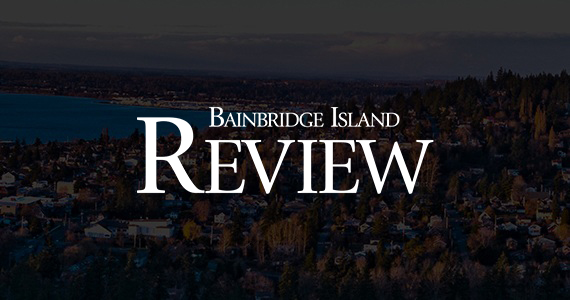One thing we need – fast – is a correction to the housing market, not the stock market. Consider:
Of all of the Kitsap county political races being played out this fall, perhaps the strangest is the competition between Jeanette Dalton, a defense attorney in Kingston, and Bruce Danielson, a Port Orchard attorney who specializes in civil litigation and also as a court-appointed arbitrator. They are seeking election on the Superior Court Position One bench.
I skipped church the other day and instead took the dog down to Pritchard Park for an early morning walk on the shoreline.
“Number 9 across. Pineapple. Five-letter word,” I announced to Dorita, wedging myself backwards to face her in my bus seat. “Is there another word for pineapple?” After remaining stumped for a few minutes and realizing it was impossible to write legibly due to the bumpy bus ride, we moved on to the horoscopes. Dora subtly protested that Catholics don’t believe in astrology, but she gave up with a laugh after I started reading aloud.
Earlier this year two surveys were conducted on Bainbridge Island to gather information about how islanders prioritize public services. Both surveys (sponsored separately by the city and the Bainbridge Island Metropolitan Park District) found that residents value open space above most other public services and would be willing to pay to continue to provide these kinds of amenities. In response to these survey findings, the Metro Park District Board, in its usual decisive fashion, voted to place a measure on the Nov. 4 ballot to support open space, trails and parks. A victory for Proposition One will support a truly comprehensive parks system for current and future islanders.
It’s not by accident that the president of the Seattle City Council is a man whose goal is to save the planet by bringing sustainability to one neighborhood, one city, at a time. For Richard Conlin, life is all about climate change, and he’s wise enough to know that the effort will be successful only if each community pulls together to nourish its own environment back to a healthy exsistence.
A Hasidic rabbi once said that the soul is like a rare and valuable coin that can become tarnished and lose its luster without proper care. However, if we shine and polish it, it becomes brilliant again. And when our soul – our true self – shines, we are happy.
The poem says the Buddha said
Rumor has it that Bainbridge Islanders love their parks. Their properties are not perfect, of course, and probably never will be. There could be more pocket parks in Winslow, more trails connecting parks and open space, better access to some of them, and more ballparks and playgrounds for youngsters.
It will probably never happen, but you’ve got to admire the audaciousness of the Transportation Commission for suggesting that the state may need to tax Puget Sound-area counties in order to help pay for the cost of operating state ferries.
Change is in the air. I love those silly old phrases that nobody much says any more.
I’ve been thinking a little more about Hal, the world’s largest particle collider that went online recently in Geneva, Switzerland. As you may recall, Hal is a multibillion dollar experiment intended to recreate the Big Bang. If the experiment is successful, it will shed new light on the origins of the universe and the nature of matter, and will immeasurably enrich our understanding of space and time.
A representative of the city’s Planning Department wrote a guest column last week (“A rebuttal on Strawberry Plant” ) in response to the previous edition’s editorial (“Is the process truly public?”), the thrust of which was that the editorial was full of misconceptions and misinterpretations.


